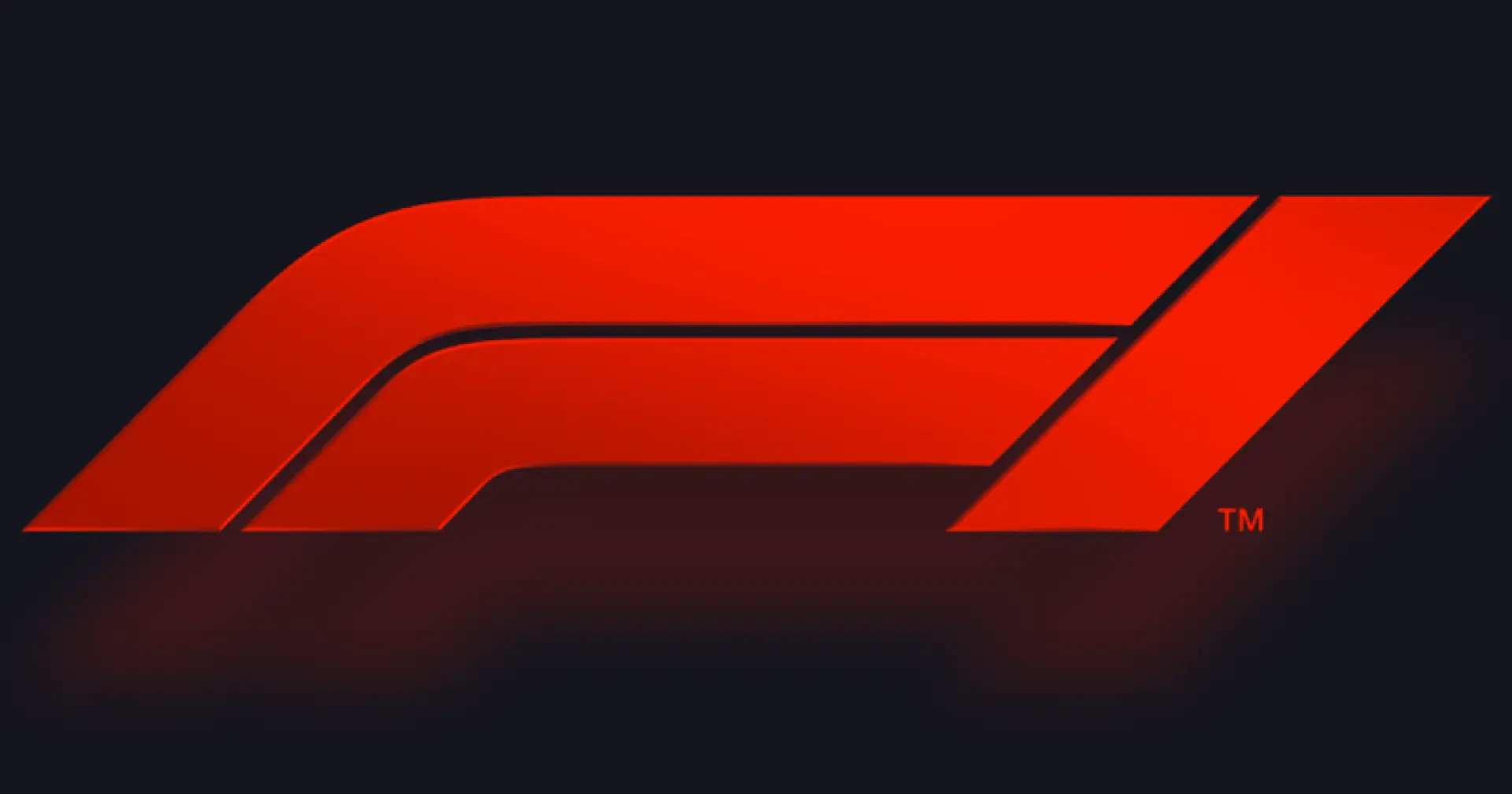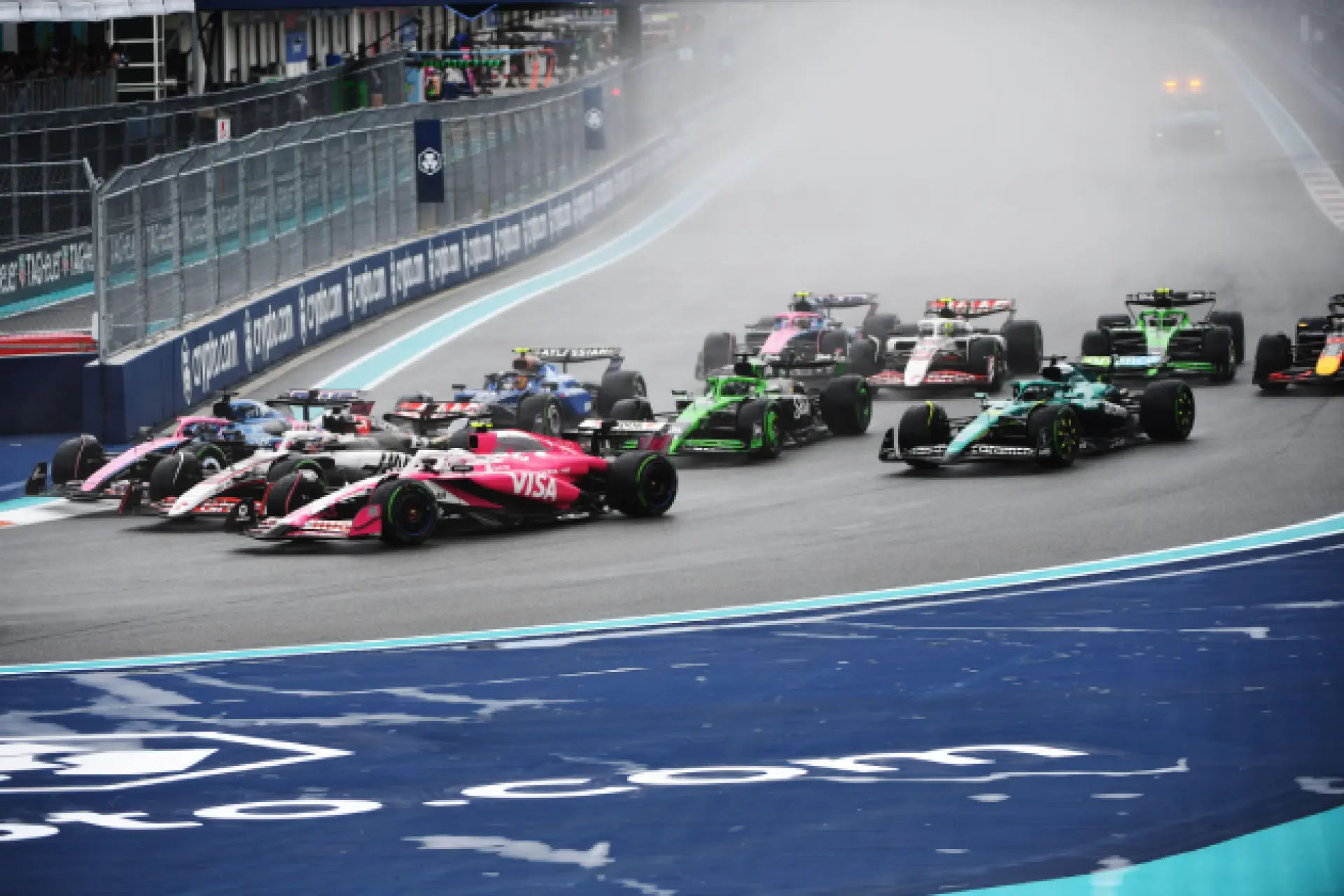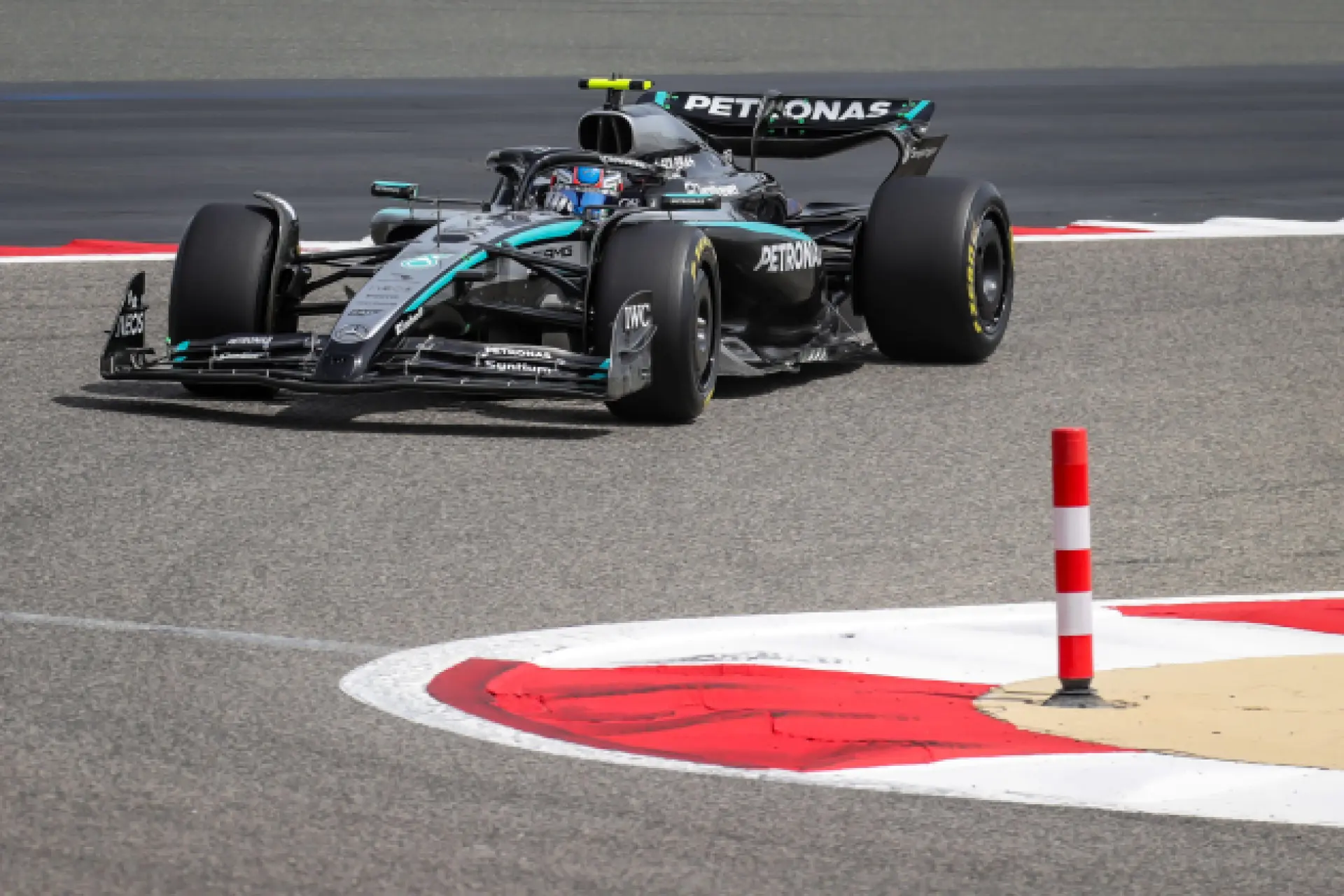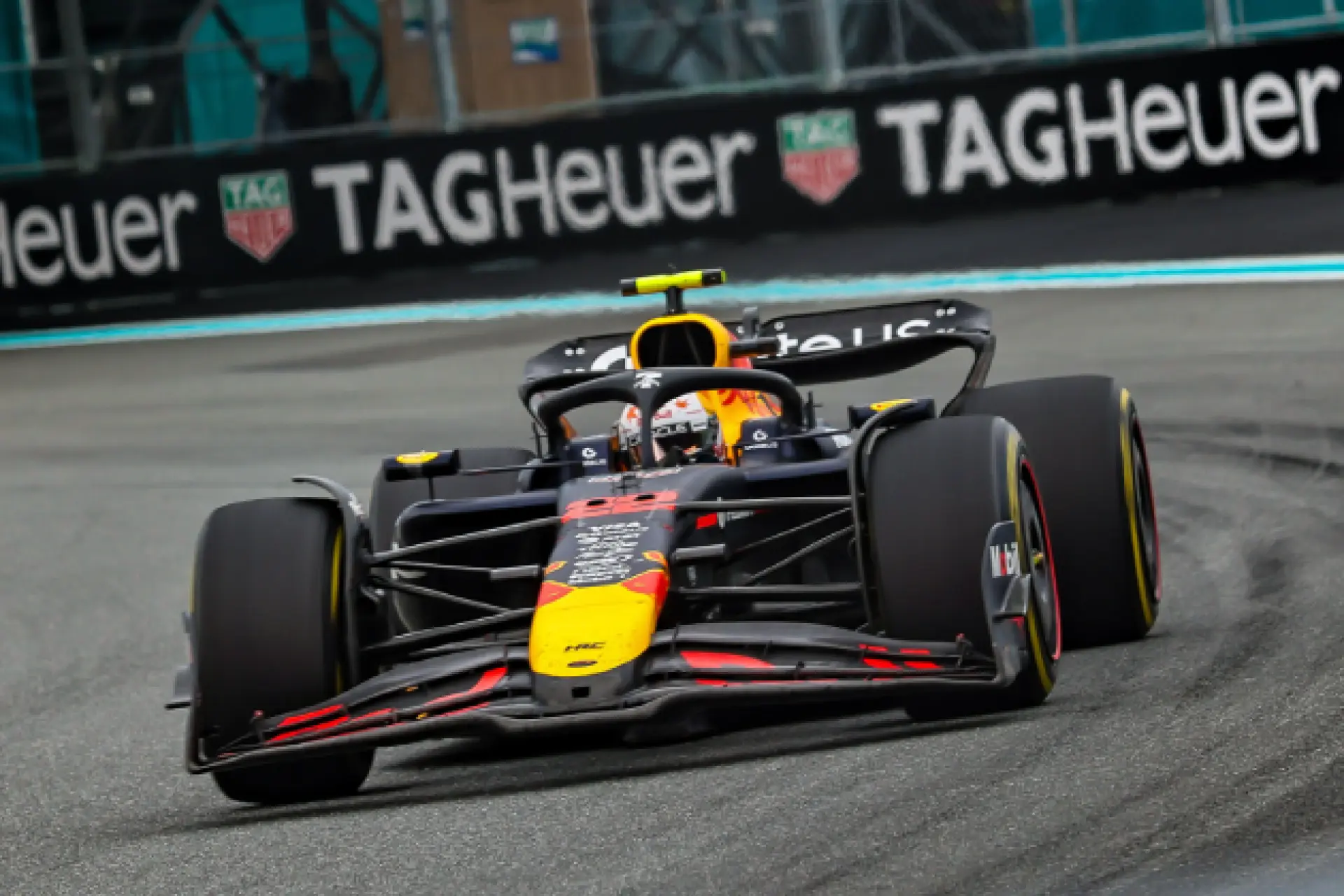What is Formula 1? Everything You Need to Know About the Pinnacle of Motorsport
Published:
If you’re new to Formula 1 (F1) and wondering how the world’s most prestigious motor racing competition works, you’ve come to the right place. Formula 1 is not just about speed – it's a sport where technology, strategy, and precision collide, creating one of the most exciting and challenging forms of motorsport in the world. In this comprehensive guide, we’ll cover everything you need to know about Formula 1, including the championship structure, the drivers, the teams, and how you can get in on the action through Formula 1 betting.
What is Formula 1?
Formula 1 is the highest class of international single-seater, open-wheel motorsport. Often referred to as the pinnacle of motorsport, Formula 1 combines cutting-edge technology, intense physical challenges, and tactical battles on some of the world’s most iconic and technically challenging racing circuits. The competition is not just about speed; it’s about endurance, innovation, and the ability to handle immense pressure.
Each Formula 1 season consists of a series of Grand Prix races held at different locations around the globe. The championship is contested by drivers who compete for the FIA Formula One World Championship and teams who vie for the Constructors' Championship.
The sport was established in 1950, and since then, it has evolved into the ultimate test for both drivers and machines. F1 cars are among the fastest racing vehicles in the world, capable of speeds exceeding 370 km/h. Drivers endure extreme g-forces, perform incredible feats of precision, and make high-stakes decisions in mere fractions of a second.
The Formula 1 Championship Structure
Formula 1 is made up of two primary championships:
- Drivers’ Championship: This title is awarded to the driver who accumulates the most points over the course of the season. Points are awarded based on race finishes, with the winner receiving 25 points, and decreasing down to the 10th position (1 point). The battle for the F1 Drivers’ Championship is one of the most exciting aspects of the sport.
- Constructors’ Championship: This title is awarded to the team that accumulates the most points across all its drivers during the season. Teams are composed of two drivers, and their combined points contribute to the team’s standing in the Constructors’ Championship.
Each Grand Prix weekend, teams and drivers compete to score as many points as possible. At the end of the season, the driver with the most points is crowned World Champion, while the team with the most points is awarded the Constructors’ Championship.

The Teams and Drivers
Formula 1 teams are the backbone of the sport, and they are responsible for building the cars, developing technology, and strategizing during races. Currently, there are 10 teams in F1, with each team fielding two cars.
1. Red Bull Racing
- Drivers:
- Max Verstappen (Netherlands)
- Yuki Tsunoda (Japan)
- Engine: Honda RBPT
- Contract Details:
- Verstappen: Contract until 2028
- Tsunoda: Confirmed for 2025
Notes: Verstappen continues his dominance, while Tsunoda steps up from Racing Bulls to partner Verstappen.
2. Ferrari
- Drivers:
- Charles Leclerc (Monaco)
- Lewis Hamilton (United Kingdom)
- Engine: Ferrari 066/12
- Contract Details:
- Leclerc: Multi-year contract
- Hamilton: Multi-year contract
Notes: Hamilton's move from Mercedes to Ferrari has been a significant shift in the F1 landscape.
3. McLaren
- Drivers:
- Lando Norris (United Kingdom)
- Oscar Piastri (Australia)
- Engine: Mercedes-AMG F1 M16
- Contract Details:
- Norris: Long-term contract
- Piastri: Contract until 2026
Notes: McLaren has shown strong performance, with Piastri securing a notable victory at the Miami Grand Prix.
4. Mercedes
- Drivers:
- George Russell (United Kingdom)
- Andrea Kimi Antonelli (Italy)
- Engine: Mercedes-AMG F1 M16
- Contract Details:
- Russell: Contract until 2025
- Antonelli: Confirmed for 2025
Notes: Russell continues his partnership with Mercedes, while Antonelli steps into a full-time role.

5. Aston Martin
- Drivers:
- Fernando Alonso (Spain)
- Lance Stroll (Canada)
- Engine: Mercedes-AMG F1 M16
- Contract Details:
- Alonso: Contract until 2026
- Stroll: Multi-year contract
Notes: Aston Martin maintains its driver lineup with Alonso and Stroll continuing their roles.
6. Alpine
- Drivers:
- Pierre Gasly (France)
- Franco Colapinto (Argentina)
- Engine: Renault E-Tech RE25
- Contract Details:
- Gasly: Multi-year contract
- Colapinto: Replaces Jack Doohan starting from the Emilia Romagna Grand Prix
Notes: Colapinto steps in after Doohan's performance issues, with Gasly continuing his tenure at Alpine.
7. Haas
- Drivers:
- Esteban Ocon (France)
- Oliver Bearman (United Kingdom)
- Engine: Ferrari 066/12
Notes: Haas introduces a new lineup with Ocon and Bearman for the 2025 season.
8. Racing Bulls
- Drivers:
- Isack Hadjar (France)
- Yuki Tsunoda (Japan)
- Engine: Honda RBPT
Notes: Hadjar joins Racing Bulls, while Tsunoda continues his role, with Lawson moving to Red Bull Racing.
9. Williams
- Drivers:
- Alexander Albon (Thailand)
- Carlos Sainz Jr. (Spain)
- Engine: Mercedes-AMG F1 M16
Notes: Sainz's move from Ferrari to Williams marks a significant change in the team's dynamics.
10. Kick Sauber
- Drivers:
- Nico Hülkenberg (Germany)
- Gabriel Bortoleto (Brazil)
- Engine: Ferrari 066/12
Notes: Kick Sauber enters the season with a new driver lineup, aiming to make an impact in the 2025 season.
This lineup reflects the dynamic changes in the F1 grid for the 2025 season, with notable driver transfers and team strategies shaping the championship landscape.
Where Does Formula 1 Race?
Formula 1 races take place on a variety of tracks across the globe, making it a truly international sport. There are 24 races scheduled in the 2025 season, with races held in 21 countries across five continents.
Some of the most iconic circuits on the F1 calendar include:
- Monaco Grand Prix: Held on the streets of Monte Carlo, the Monaco GP is one of the most prestigious events in F1.
- Silverstone Circuit (UK): Known for its rich history, Silverstone is often referred to as the "home of British motorsport."
- Spa-Francorchamps (Belgium): A fan favourite with its high-speed corners and unpredictable weather conditions.
- Suzuka Circuit (Japan): Known for its figure-eight layout, Suzuka is one of the most challenging tracks for drivers.
In addition to these classic venues, F1 has expanded to newer locations like Miami, Las Vegas, and Saudi Arabia, making for a diverse and exciting calendar. The 2025 season will feature 24 races, including 6 F1 Sprint events, ensuring plenty of excitement for fans and bettors alike.
How Does the Formula 1 Weekend Work?
A typical Formula 1 weekend spans three days: Friday, Saturday, and Sunday. The schedule looks like this:
- Friday: Two Free Practice (FP1 and FP2) sessions take place, where teams and drivers test car setups and try to find the optimal setup for qualifying and the race.
- Saturday: After a final practice session (FP3), drivers compete in Qualifying. The qualifying session is divided into three stages: Q1, Q2, and Q3, where the slowest drivers are eliminated until the final 10 positions are determined.
- Sunday: The Grand Prix race takes place, where drivers compete for the win, with points awarded to the top 10 finishers.
The F1 Sprint is a recent addition to some race weekends. It is a 100km race (around one-third the distance of a normal Grand Prix) that takes place on Saturday. The result of the Sprint race determines the grid for the main race, adding another layer of excitement to the weekend.

How Long Do F1 Races Last?
The length of a Formula 1 race typically lasts between 1.5 and 2 hours. The race distance is set to be around 305 km, though Monaco is an exception, where the race length is adjusted due to the nature of the street circuit.
While the race itself is typically fast-paced, unexpected factors such as Safety Cars or red flags can extend the race duration. The unpredictability of these elements is part of what makes F1 so exciting.
Formula 1 Cars: Speed and Innovation
F1 cars are incredibly complex machines, designed to offer the best performance on the track. These cars are powered by turbocharged V6 engines and use a combination of kinetic and thermal energy recovery systems. Their design is optimized for aerodynamics, with features like front and rear wings that create downforce, allowing them to stick to the track during high-speed corners.
The cars are constantly evolving with new technology, and each team works tirelessly to develop the fastest, most reliable car. The technological innovations in F1 cars influence the entire automotive industry, with cutting-edge features often finding their way into consumer vehicles.
Formula 1 Betting: How to Get Involved
If you’re looking to bet on Formula 1, there are plenty of markets available. From race winner to fastest lap, Formula 1 betting allows fans to engage with the sport in new and exciting ways. The odds in F1 betting can fluctuate throughout the season based on driver form, team performance, and track conditions.
Some of the common Formula 1 betting markets include:
- Race Winner: Bet on the driver you think will win the Grand Prix.
- Pole Position: Bet on which driver will qualify in the first position.
- Podium Finish: Bet on a driver finishing in the top 3.
- Fastest Lap: Bet on which driver will record the fastest lap during the race.
- Any Driver Other Than: Bet for or against the favourite to win the GP.
At Sportingbet, you can find competitive Formula 1 odds on all of these markets and more. Whether you’re a seasoned bettor or a novice, betting on Formula 1 adds an extra layer of excitement to the already thrilling sport.
Conclusion
Formula 1 is a sport that combines speed, strategy, and cutting-edge technology, making it one of the most exciting competitions on the planet. From the fast cars to the intense rivalries, every F1 season brings fresh drama and intrigue. Whether you're a newcomer looking to learn about the sport or an avid fan looking to bet on Formula 1, there's always something to look forward to in this global racing spectacle.
Start following the Formula 1 calendar, place your Formula 1 bets, and enjoy the adrenaline rush that comes with one of the most thrilling sports in the world.





